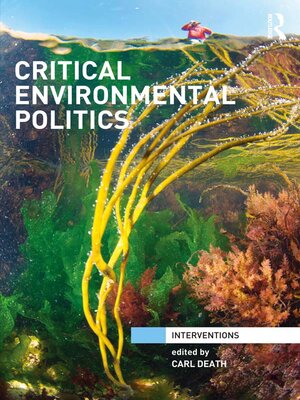
Sign up to save your library
With an OverDrive account, you can save your favorite libraries for at-a-glance information about availability. Find out more about OverDrive accounts.
Find this title in Libby, the library reading app by OverDrive.



Search for a digital library with this title
Title found at these libraries:
| Library Name | Distance |
|---|---|
| Loading... |
The aim of this book is to review central concepts in the study of environmental politics and to open up new questions, problems, and research agendas in the field.
The volume does so by drawing on a wide range of approaches from critical theory to poststructuralism, and spanning disciplines including international relations, geography, sociology, history, philosophy, anthropology, and political science. The 28 chapters cover a range of global and local studies, illustrations and cases. These range from the Cochabamba conference in Bolivia to climate camps in the UK; UN summits in Rio de Janeiro and Johannesburg to climate migrants from Pacific islands; forests in Indonesia to Dutch energy governance reform; indigenous communities in Namibia to oil extraction in the Niger Delta; survivalist militias in the USA to Maasai tribesmen in Kenya.
Rather than following a regional or issue-based (e.g. water, forests, pollution, etc) structure, the volume is organised in terms of key concepts in the field, including those which have been central to the social sciences for a long time (such as citizenship, commodification, consumption, feminism, justice, movements, science, security, the state, summits, and technology); those which have been at the heart of environmental politics for many years (including biodiversity, climate change, conservation, eco-centrism, limits, localism, resources, sacrifice, and sustainability); and many which have been introduced to these literatures and debates more recently (biopolitics, governance, governmentality, hybridity, posthumanism, risk, and vulnerability).
Features and benefits of the book:
Each chapter is written by leading international authors in their field.
This exciting new volume will be essential textbook reading for all students of environmental politics, as well as provocatively presenting the field in a different light for more established researchers.







